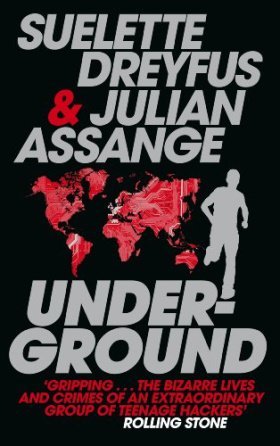`I think maybe I'd like to do a course in computer programming …'
His voice trailed off, hesitantly.
`Why would you want to do that?' she said. `Can't you think of anything better than that?'
`Uhm …' Electron was at a loss. He didn't know what to do. That was why he had come to her. He cast around for something which seemed a more mainstream career option but which might also let him work on computers. `Well, accounting maybe?'
`Oh yes, that's much better,' she said.
`You can probably even get into a university, and study accounting there. I'm sure you will enjoy it,' she added, smiling as she closed his file.
The borrowed computers were, in Electron's opinion, one of the few good things about school. He did reasonably well at school, but only because it didn't take much effort. Teachers consistently told his father that Electron was underachieving and that he distracted the other students in class. For the most part, the criticism was just low-level noise. Occasionally, however, Electron had more serious run-ins with his teachers. Some thought he was gifted. Others thought the freckle-faced, Irish-looking boy who helped his friends set fire to textbooks at the back of the class was nothing but a smart alec.
When he was sixteen, Electron bought his own computer. He used it to crack software protection, just as Par had done. The Apple was soon replaced by a more powerful Amiga with a 20 megabyte IBM compatible sidecar. The computers lived, in succession, on one of the two desks in his bedroom. The second desk, for his school work, was usually piled high with untouched assignments.
The most striking aspect of Electron's room was the ream after ream of dot matrix computer print-out which littered the floor. Standing at almost any point in the simply furnished room, someone could reach out and grab at least one pile of print-outs, most of which contained either usernames and passwords or printed computer program code. In between the piles of print-outs, were T-shirts, jeans, sneakers and books on the floor. It was impossible to walk across Electron's room without stepping on something.
The turning point for Electron was the purchase of a second-hand 300 baud modem in 1986. Overnight, the modem transformed Electron's love of the computer into an obsession. During the semester immediately before the modem's arrival, Electron's report card showed six As and one B. The following semester he earned six Bs and only one A.
Electron had moved onto bigger and better things than school. He quickly became a regular user of underground BBSes and began hacking. He was enthralled by an article he discovered describing how several hackers claimed to have moved a satellite around in space simply by hacking computers. From that moment on, Electron decided he wanted to hack—to find out if the article was true.
Before he graduated from school in 1987, Electron had hacked NASA, an achievement which saw him dancing around the dining room table in the middle of the night chanting, `I got into NASA! I got into NASA!' He hadn't moved any satellites, but getting into the space agency was as thrilling as flying to the moon.
By 1989, he had been hacking regularly for years, much to the chagrin of his sister, who claimed her social life suffered because the family's sole phone line was always tied up by the modem.
For Phoenix, Electron was a partner in hacking, and to a lesser degree a mentor. Electron had a lot to offer, by that time even more than The Realm.
`Cactus, Cad, Cadaver, Caddis, Cadence, Cadet, Caesura. What the fuck is a Caesura?' Phoenix kept ploughing through the Cs.
`Dunno. Kill that,' Electron answered, distracted.
`Caesura. Well, fuck. I know I'd wanna use that as a password.'
Phoenix laughed. `What the hell kind of word is Caduceus?'
`A dead one. Kill all those. Who makes up these dictionaries?'
Electron said.
`Yeah.'
`Caisson, Calabash. Kill those. Kill, kill, kill,' Electron said gleefully.
`Hang on. How come I don't have Calabash in my list?' Phoenix feigned indignation.
Electron laughed.
`Hey,' Phoenix said, `we should put in words like "Qwerty" and
"ABCDEF" and "ASDFGH".'
`Did that already.' Electron had already put together a list of other common passwords, such as the `words' made when a user typed the six letters in the first alphabet row on a keyboard.
Phoenix started on the list again. `OK the COs. Commend, Comment, Commerce, Commercial, Commercialism, Commercially. Kill those last three.'
`Huh? Why kill Commercial?'
`Let's just kill all the words with more than eight characters,'
Phoenix said.
`No. That's not a good idea.'
`How come? The computer's only going to read the first eight characters and encrypt those. So we should kill all the rest.'
Sometimes Phoenix just didn't get it. But Electron didn't rub it in. He kept it low-key, so as not to bruise Phoenix's ego. Often Electron sensed Phoenix sought approval from the older hacker, but it was a subtle, perhaps even unconscious search.
`Nah,' Electron began, `See, someone might use the whole word, Commerce or Commercial. The first eight letters of these words are not the same. The eighth character in Commerce is "e", but in Commercial it's "i".'
There was a short silence.
`Yeah,' Electron went on, `but you could kill all the words like Commercially, and Commercialism, that come after Commercial. See?'
`Yeah. OK. I see,' Phoenix said.
`But don't just kill every word longer than eight characters,'
Electron added.

























